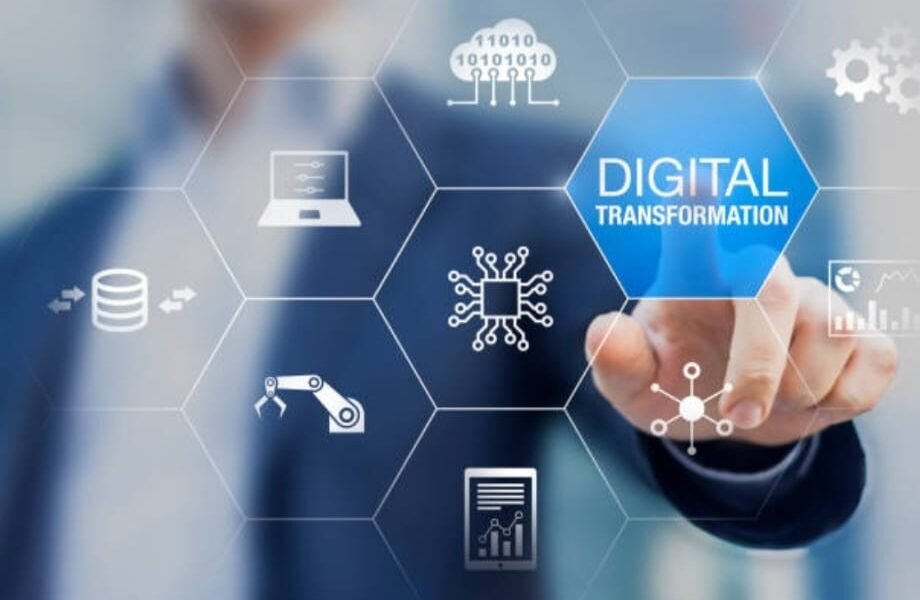Retail is among the many sectors that have benefited immensely from the tech revolution.
Many businesses now leverage technology’s transformative abilities to streamline their workflows and automate processes that initially required human intervention.
In this article, we look at digital transformation in the retail sector and what its benefits are.
Photo Credit: iStock.com
Introducing Retail Digital Transformation
Retail digital transformation basically refers to the incorporation of technology into the retail industry with a view to improving operational efficiency, enhancing customer experience, and spurring growth.
There are multiple ways to infuse technology in retail.
For instance, some companies maintain chatbots that answer frequently asked questions while also engaging their customers in meaningful conversations in the absence of human support staff. Others use robotics to supplement human efforts, especially where heavy or delicate goods need to be moved across various stages of the production line.
Benefits of Retail Digital Transformation
1. Automated Customer Support
Not many companies have the means to employ round-the-clock human support personnel. But for multinationals with clients spread overseas, it’s paramount to maintain 24/7 customer support to handle after-hours call-ins. This is where chatbots come from.
Bots can perform a range of tasks that would otherwise require real human staffers. These include welcoming a web visitor to your e-commerce store and replying frequently asked questions (FAQs).
Some chatbots employ cutting-edge language models like GPT, enabling you to converse with them as if you’re having a one-on-one with a sales representative.
2. Efficient Market Research
The importance of conducting in-depth market research doesn’t only apply to would-be investors. Existing businesses also need to undertake continuous market research to stay in the loop on changing customer behaviors.
Technology has played an integral role in easing the once-tedious process of gathering useful consumer information.
We now have powerful market research tools that perform the task twice as fast while costing half as much as human research personnel. Most of these programs utilize artificial intelligence (AI), which explains their remarkable efficiency.
Photo Credit: AdobeStock.com
3. Smart Upselling
Upselling is another notable benefit of retail digital transformation, as it allows businesses to boost their sales without necessarily incurring additional capital investment. All you need is the right digital software, and you’ll watch as your revenues double with virtually no extra effort on your part.
One way technology aids upselling is by studying customer behaviors over time. Whenever repeat clients visit your e-commerce store, these intelligence software will use the learned data to suggest excellent product recommendations.
Some tools can even recommend similar or complementary products for first-time buyers. They simply detect the items the customer has added to their cart to pull up relevant suggestions.
4. Enhanced Safety
Security is one area that every company ought to invest in, no matter its location or scale. Fortunately, there are security solutions for every business.
Tech-driven security interventions in retail have reduced the risks of cyberattacks significantly. Businesses can now procure software that use AI or machine learning (ML) to flag off potential threats before they occur.
Most of these programs are engineered to stop hackers in their tracks. They’re effective at detecting malware, phishing attacks, credit card fraud, identity theft, and other activities that could compromise a company’s security.
5. Improved Shopping Assistance
We’ve already mentioned how certain software can recommend products based on a customer’s shopping patterns. But that’s not the only way businesses can interact with their clients or prospects at the points of purchase.
Smarter brands have since integrated augmented reality (AR) into their systems. AR utilizes powerful technology that helps consumers to try products before buying them, albeit virtually. From eyeglasses to clothing, shoes, and makeup, it’s now easy to virtually test-drive a product before adding it to the cart.
Integrating AR into your retail system is an ingenious way to reduce purchase returns. It can also endear more clients to your brand. That’s because shoppers get a sense that their interests are taken care of even when they’re unable to find the specific products they’re looking for.
Photo Credit: AdobeStock.com
6. Better Inventory Management
Keeping track of inventory used to be a daunting task, especially for retailers registering huge stock turnovers. But that all changed with the advent of technology.
Today, there’s no shortage of software that automates the process of inventory tracking. These tools have eliminated most of the common human errors previously reported in manual inventory tracking systems.
Inventory management software are designed with speed and accuracy in mind. Their goal is to streamline inventory processes for optimized productivity. You can invest the time saved into other equally-important aspects of your business, thereby spurring growth.
7. Automated Invoicing
Manual invoicing was once a leading cause of losses for many businesses, and understandably so. Sending manual invoices means there are always risks for error.
You can only imagine the extent of losses your company would suffer if a supplier inadvertently added a ZERO to a $1,000,000 invoice. It’s worse if such discrepancies escape the attention of your accounting staff long enough.
Fortunately, technology has revolutionized the invoice management sector. You no longer have to handle manual invoices, which translates to fewer risks of costly errors.
Photo Credit: AdobeStock.com
Final Word
That technology has transformed the retail sector is beyond doubt. However, it’s important to point out that you’ll require some initial capital to procure and set up the above-listed technological solutions.
Therefore, it’s essential to analyze your needs carefully to determine the specific areas of your business to digitize first.
